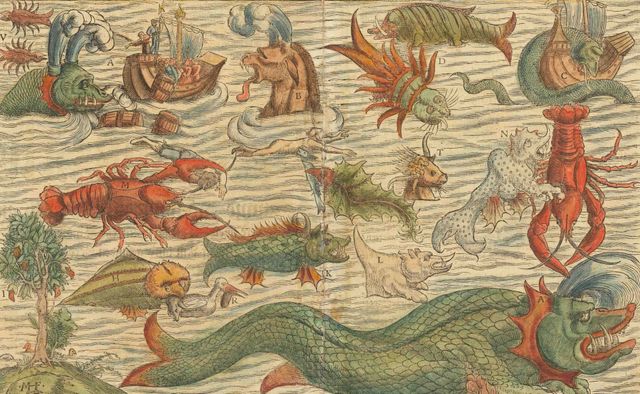Lectures, discussion
#Feralizing: Day 1

Feral is what was first changed by humans but is now beyond systems of control and escapes domestication. Ferality can be messy, unruly, the impure realm between the natural and artificial, between technology and imagination, science and art. Humans and nonhuman animals, ecologies, effects, processes, but also theories can be feral in this sense. Few outside of desolate circumstances will choose the feral state, which is often marked by violence, isolation and insecurity. Yet what is the current political, ecological and social situation if not desolate? For this edition of the New Alphabet School modern witches, artists, urban gardeners, storytellers and escapees explore these multidimensional spaces in lectures and workshops, inquiring how to address, create and use feral cartographies as liberating confusions. How can feral spirituality be practiced when connections to certain traditions have been lost? How can we address feral phenomena that cannot be grasped in established categories? Is it possible to feralize one’s thoughts?
Curated in cooperation with Agata Kowalewska and Jacob Eriksen
Thursday, June 9
6 pm
Agonal Respirations
Performance by Ania Nowak
Breathing, speaking and moving as perishing acts: In Agonal Respirations, Ania Nowak touches on memory and its gradual loss. Over two years into the pandemic and with the ongoing state and military violence in many parts of the world, she works with and against the mental state of brain fog. Brain fog, described by neuroscientists as a decrease in cognitive functions, affects the memory, the capacity to concentrate and be creative, as well as the ability to problem-solve. This work, resulting from a prolonged period of stasis and anxiety, gasps at the ruins of what we thought was unforgettable.
6.30 pm
Welcome
By Julia Hanske, Pawel Wodzinski and Olga Schubert
In English
6.45 pm
Introduction
By Agata Kowalewska and Jacob Eriksen
In English
7 pm
Feralizing Warsaw
Storytelling/cinematic contribution by Joanna Rajkowska
In Polish with simultaneous English translation
A big orange fish is subtly touching a wall in a pond at Grzybowski Square, the former ghetto in Warsaw. This is where the artist Joanna Rajkowska created her installation, the Oxygenator. The image materialized in her head when the question of Feralizing was addressed. In the environment of the historical site where the Warsaw ghetto wall could be part of the division, separation and Nazi ordering of the past, water was establishing its own habitat, naturally, creating a completely new universe, containing and subduing all its entities, including the wall. Fish, curious, were coming closer and swimming further away, examining the wall, looking at it, introducing their fishiness to the human memories that the wall contained. What would the rabbi say? What would the city conservationist officer say? Will they allow the fish to play with the relics? The storytelling/cinematic contribution presents the moments of these uncanny encounters between human matter – what has been charged with humans being and doing – and the habitats that contain it. The intertwining, the lacing of one through another produces a very different sense of time and an almost ungraspable curving of space in the vision of human presence on this planet.
7.20 pm
Survival in Situations of Urgency
Remote Lecture by Nikita Kadan
In English
During the period of systematic mass murdering of Ukrainians by the Russian Federation, the sensitivity, thinking and ways to exist changed cardinally. The mode of survival at the zone of devastation influences all relations: between human beings, between the human and non-human, living and artificial, localized and nomadic. They turn into “surviving hybrids” reinventing themselves with the goal to survive, to stay, to not to be erased. Each war zone is a laboratory of invention, in a sense a playground and school where people learn to turn endlessly different. The need to survive provokes creativity.
7.40 pm
Unworlding: An Aesthetics of Collapse
Lecture by Jack Halberstam
In English
How can concepts such as the human, subject, object or animal be tipped out of their hierarchical formations? How can they form new orders of meaning and relations to one another? The major philosophical traditions of the last century, presume a totality of things, a form of being that exists through the sorting of subjects from objects, objects from things and things from unseen forces. And while ”world” and “life” seem to offer vectors for utopian thinking (“another world is possible”), these totalizing concepts have also been predicated upon anti-Blackness and from the elevation of the human above all other forms of life. Rather than holding out for new worlds, revitalized notions of life, or remade utopian dreams, this lecture begins with the premise that world-making, as currently conceived, can only proceed by way of unworlding or world unmaking. The talk follows a series of aesthetic experiments from the 1970’s to the present that revel in collapse, destruction and ruination.
8 pm
Discussion and Q&A
Moderated by Agata Kowalewska and Jacob Eriksen
In English